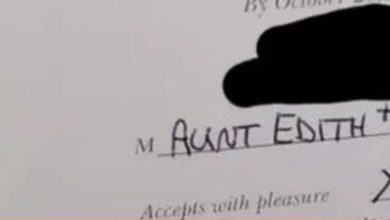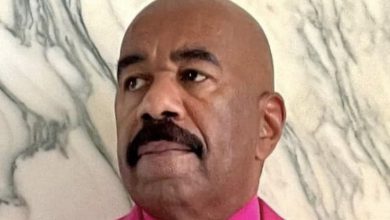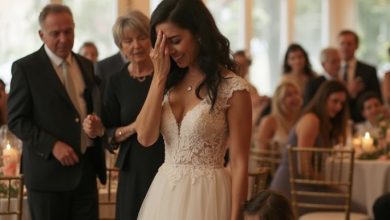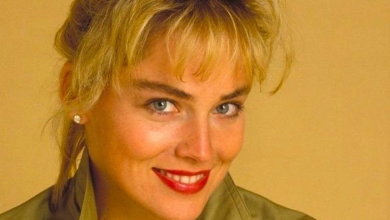I Thought My Husband Was Supporting His Sick Sister – Until I Found Out the Truth He Hid From Me
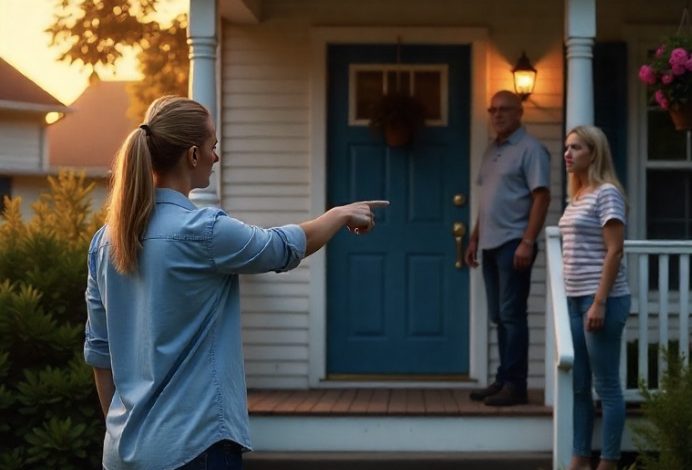
Every month, my husband faithfully sent money to his so-called “ill sister.” For fourteen long years, I trusted him without question—until one small birthday card led me to a house, where a teenage girl with the very same eyes as my husband opened the door. That single moment shattered everything I thought I knew about my life.
My name is Teresa. I’m seventy-six years old now, and the past feels like a place I can revisit whenever I close my eyes. Some memories are gentle, filled with laughter and the small joys of raising children. Others cut like glass, sharp and unforgettable. The years I spent living under the shadow of my husband’s lies belong to the latter. For almost fourteen years of our marriage, a part of Arnold’s heart—and a painful portion of his paycheck—belonged to another woman.
He told me her name was Celia. He described her as a frail sister in Indianapolis, a woman weakened by some vague illness that required constant financial support. She was his “only family,” he said, and he insisted it was his duty to take care of her. I believed him. I believed him for more than a decade, until the day I learned the truth.
Our story began back in 1965. I was sixteen then, still half a girl, raised in a modest household outside Chicago. My parents had left the fields of farming behind and settled in the suburbs, searching for better opportunities. I met Arnold at a community dance. He was tall, broad-shouldered, and handsome in a quiet, dependable way. His eyes—warm brown and steady—drew me in like a tide I couldn’t resist. He was only a few years older, but already working as a truck driver, which in those days meant good pay and a stable career.
We married quickly, as people often did back then. My mother fretted and warned me that I was rushing into a life I didn’t fully understand. But when you’re young and in love, you don’t hear warnings; you only hear the music of your own heart. Six months later, I walked down the aisle in a borrowed dress, promising God and everyone I knew that I would stand beside Arnold forever.
Our beginnings were modest—just a tiny apartment tucked in the back of his aunt’s house. Arnold worked long routes on the highway, driving from Chicago to Indianapolis and sometimes as far as New York. He would leave for days at a time, the scent of diesel lingering on his coat, and I would wait at home, eager for his return.
“It’s all for us, Teresa,” he used to tell me with a serious look. “For the family we’re going to build.”
And build we did. First came our son, Charles Edward. Two years later, Mary Elizabeth arrived, and then Joseph Andrew. Our home was noisy and full of love, even if our bank account was always thin. Life was ordinary, filled with diapers, schoolbooks, patched shoes, and simple suppers. Through it all, Arnold was on the road more often than not, a ghost who breezed in and out of our lives with a hug and a paycheck.
It was in our second year of marriage that I first heard about Celia. One evening, Arnold sat me down and told me solemnly that he had a sister who was very sick. She lived in Indianapolis, he explained, and needed his help to survive. Their parents had passed away, leaving only the two of them.
“She’s all I have, Teresa,” he said in that low, serious tone of his. “I can’t abandon her.”
I was young, and I was raised to believe that loyalty to family was sacred. So, I accepted it without protest. Every month, without fail, Arnold set aside a portion of his earnings to send to Celia. When money was tight, when I had to sew patches onto Charles’s sneakers or tell Mary she couldn’t buy the book she wanted, I sometimes resented that envelope. But I swallowed my feelings, telling myself that Arnold was noble, that I had married a man with a good heart.
The years passed like pages in a book. We eventually moved into a modest two-story house. The children grew. I took in laundry and later worked part-time at a clothing factory to help with expenses. We never starved, but we never had luxuries either. Celia’s monthly “needs” always came first.
And yet, we never once visited her. Whenever I suggested it, Arnold grew uneasy.
“She’s too private,” he would say. “Her illness makes it hard for her to see anyone. It’s not a good idea.”
I accepted his excuses. That’s what wives did then. We trusted. We stayed quiet. Looking back, I wonder how I didn’t see through it, but trust was the air I breathed.
Everything changed in March of 1978. By then, we had been married for thirteen years. Charles was twelve, Mary was ten, and Joseph was seven. I had begun to find my own rhythm outside the home, sewing part-time at the factory, but most of my days were still devoted to the children.
One evening, I was preparing Arnold’s bag for another “trip to New York.” I picked up his heavy navy coat and felt something crinkle in the inside pocket. Curious, I slipped my hand in and pulled out a birthday card. It was handmade, decorated with colorful dots, and the handwriting inside was neat and feminine.
It read:
“Happy birthday, my love. May God bless you with many more years as the wonderful father and husband you are. With all our love, Celia and Deborah.”
My heart nearly stopped. My love. Father. Husband. And who was Deborah?
I remembered Arnold’s birthday just a month earlier. I had baked him a simple cake and given him a new wallet. He’d thanked me quietly and gone to bed. Now I realized he had already celebrated—with someone else.
With trembling hands, I tucked the card into my apron pocket. A cold certainty settled into my bones. I didn’t confront him then. Something told me I needed more than one card; I needed proof so undeniable that even Arnold couldn’t explain it away.
A few days later, the dispatcher from his trucking company called. “Is Arnold home?” he asked.
“No,” I replied. “He’s on the road to New York.”
There was silence. Then the dispatcher said, “New York? That’s impossible, ma’am. He hasn’t taken any loads this week.”
The room spun around me. If he wasn’t in New York, then where was he? The answer came like a whisper in my mind: Indianapolis.
I waited for his next supposed trip. Two weeks later, as soon as he left, I arranged for a neighbor to watch the children. I boarded a bus to Indianapolis with the birthday card tucked safely in my purse. It was my only map into the truth.
The address led me to a neat, cheerful house on a tree-lined street. The sign outside read Celia’s Atelier – Custom Clothing. My knees nearly buckled. I pushed open the gate and stepped inside.
The shop was filled with colorful fabrics and mannequins. From the back came a girl, maybe fourteen, with long brown hair. She smiled at me politely—and my breath caught. Her eyes. They were Arnold’s eyes.
“Can I help you, ma’am?” she asked.
I could barely speak. “I’m… looking for Celia.”
“She just stepped out,” the girl replied. “But my dad’s here. Do you want me to call him?”
My dad. The words pierced me like a blade. She turned and shouted, “Dad! Someone’s here!”
Seconds stretched into forever before footsteps approached. And then he appeared. Arnold. My husband. The man who was supposed to be halfway to New York. His face drained of color when he saw me.
“Teresa,” he whispered.
Before I could speak, the front door opened. A stylish woman entered, arms full of shopping bags. She stopped short when she saw me. “Oh, I didn’t realize we had a customer,” she said brightly.
“Celia,” Arnold muttered. “This is… Teresa.”
Her smile vanished. The name hit her like a blow. She knew exactly who I was. My hand shook as I pulled the birthday card from my purse and held it out. Her shopping bags slipped from her hands, thudding to the floor.
The girl—Deborah—looked from me to them, her face filled with confusion. “Mom? Dad? Who is she?”
“Deborah, go to your room,” Celia said quickly, panic in her voice.
“No,” I said firmly. “She deserves to know. She’s as much a victim as I am.”
I turned to the girl, her eyes wide with fear. “My name is Teresa. I’ve been married to your father for thirteen years. We have three children together.”
Her face crumpled. “Dad… it’s not true, is it?” she whispered.
Arnold said nothing. The silence was louder than any words. I glanced around and saw the evidence all over the shop—family photos of Arnold with Celia and Deborah, smiling at birthdays, vacations, a happy life funded by the sacrifices of my children.
“For fourteen years?” I demanded. “Fourteen years of lies?”
Celia spoke then, tears spilling down her cheeks. “He told me he was a widower, Teresa. He said his wife died before Deborah was born.”
We locked eyes. In that moment, I saw not just a rival but another woman deceived, her life built on the same foundation of lies. We were both victims of the same man.
“And the money?” I asked Arnold bitterly. “The money for your ‘sick sister’?”
He looked away. That silence told me everything.
Then I revealed my final truth. “I just found out I’m expecting our fourth child, Arnold.”
His eyes widened in shock, but I felt strangely calm. At the very moment our family was unknowingly growing, I was discovering it had been poisoned by betrayal.
“I’m going back to Chicago,” I said firmly. “When you return, pack your things. I don’t want you near me or my children ever again.”
And I walked out into the sunlight of Indianapolis, my steps shaky but sure. The life I thought I had was over, but I was still standing. I didn’t know how I would raise four children alone, but I knew I would. The Teresa who walked into that atelier was a trusting wife. The Teresa who walked out was a survivor.

